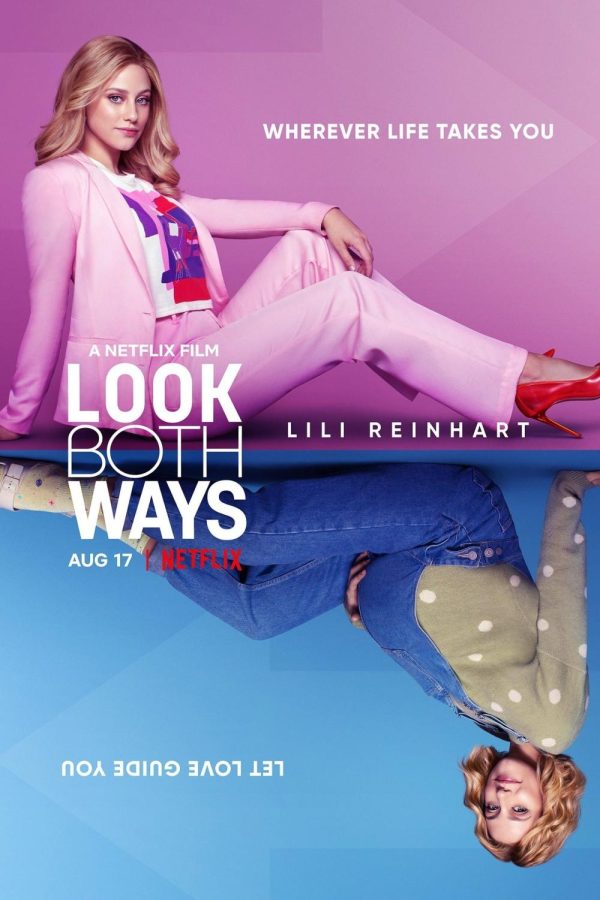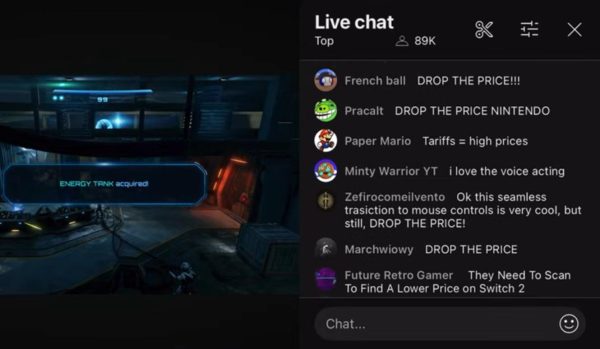‘Look Both Ways’: What if it was all different?
*Spoilers ahead*
Here we are — the first month of classes is almost gone, and you might still be wondering what this semester will look like for you. Besides that, if you are about to graduate, you probably already feel the weight of that “what now?” feeling.
Focus on this feeling and let’s talk about “Look Both Ways.” Premiered on Netflix on Aug. 17, 2022 and starring Lili Reinhart, this not-so-traditional romance might make you rethink the flexibility of your plans.
Like some of you — and me — Natalie is one of those obsessive planners.
“If you fail to plan, you are planning to fail,” Benjamin Franklin said, a long time ago, and so agreed our Natalie Bennet.
Natalie had a five-year plan that laid out her career and life goals: moving to LA, finding her dream job, living with her best friend and all those other cliché, post-graduation dreams.
Bennet did not expect to find herself on the night of her graduation party having a pregnancy scare (disclosure: of her best friend.)
The special touch of this movie is that, in contrast to similar films, it does not show only one end of this story. “Look Both Ways” follows Natalie’s journey on both, opposite sides of the same night. It gives the viewer the side of a positive test result and the side of the negative one.
For us curious planners, this movie solves the question of, “what if?” It can be confusing to follow a double, parallel timeline, but it actually fulfills a curiosity that I’m sure all of us have had before: “What if this day had gone differently?”
To help the viewer understand each perspective, director Wanuri Kahiu created two visually different universes. In the pink scenario, you have the “not pregnant” version of Natalie. In the blue universe, you have Natalie and her motherhood experiences.
Just as positive differs from negative, so did both of Natalie’s realities. However, the catch of this production is how both opposites end at the same “grand finale.”
“There’s a happy ending here, and there’s not one life that’s worse or better than the other,” Reinhart told Variety. “(…) you have options, and your life doesn’t have to look a certain way for you to feel happy.”
However, “Look Both Ways” got a wave of critiques regarding the way it portrayed Natalie’s reproductive rights — partly because the movie was released closely following the overturning of Roe v. Wade in the U.S.
“The beautiful thing in our film, which now sadly feels a bit dystopian (…), but it is a movie about a woman who had the opportunity to make a choice,” Reinhart said.
Still, critics did not interpret the movie as the actress and director explained it. Many viewers defined the movie as stereotyped and tone-deaf for women.
“Never mind that “Look Both Ways” seems to posit that, for women, child rearing and a career are in relative opposition — when Natalie comes to a fork in the road, the movie hardly lets her look both ways,” Natalia Winkelman wrote for The New York Post.
For many, the story omitted too many important details that would have made a total difference in the interpretation of Natalie’s life.
“But like the rest of the film, the portrayal of events in Natalie’s pregnancy timeline seems too glossy to be true,” Sam Reed wrote for Glamour.com. “(…) While it’s clear she is privileged, the failure to acknowledge it at all leads me to believe that perhaps the filmmakers think of her situation as the rule rather than the exception.”
I agree that “Look Both Ways” is a bit too much of a fantasy — and I say that referring to both perspectives.
The transition post-graduation is not necessarily as smooth as it was for Natalie. Sometimes, five years is not enough to find a dream job (and fulfill your career dream, and get the relationship of your life — see what I’m getting at?)
Natalie’s motherhood also lacks a lot of important and realistic details. Motherhood is a unique life experience, and it was diminished to a very stereotypical pattern here.
Still, I could get three thought-provoking topics from this movie.
- Plans sometimes have to change, and this is not necessarily bad — it can actually be good.
- Life is too unpredictable to be limited to one right “future” — allow yourself to explore.
- Determination and career plans can look different in each phase of life.
“Look Both Ways” made viewers look at more than two different ways of interpreting this production, but I think it is still valid to watch it and check for yourself. Are you going to like it or not? Who knows — try to look both ways!









